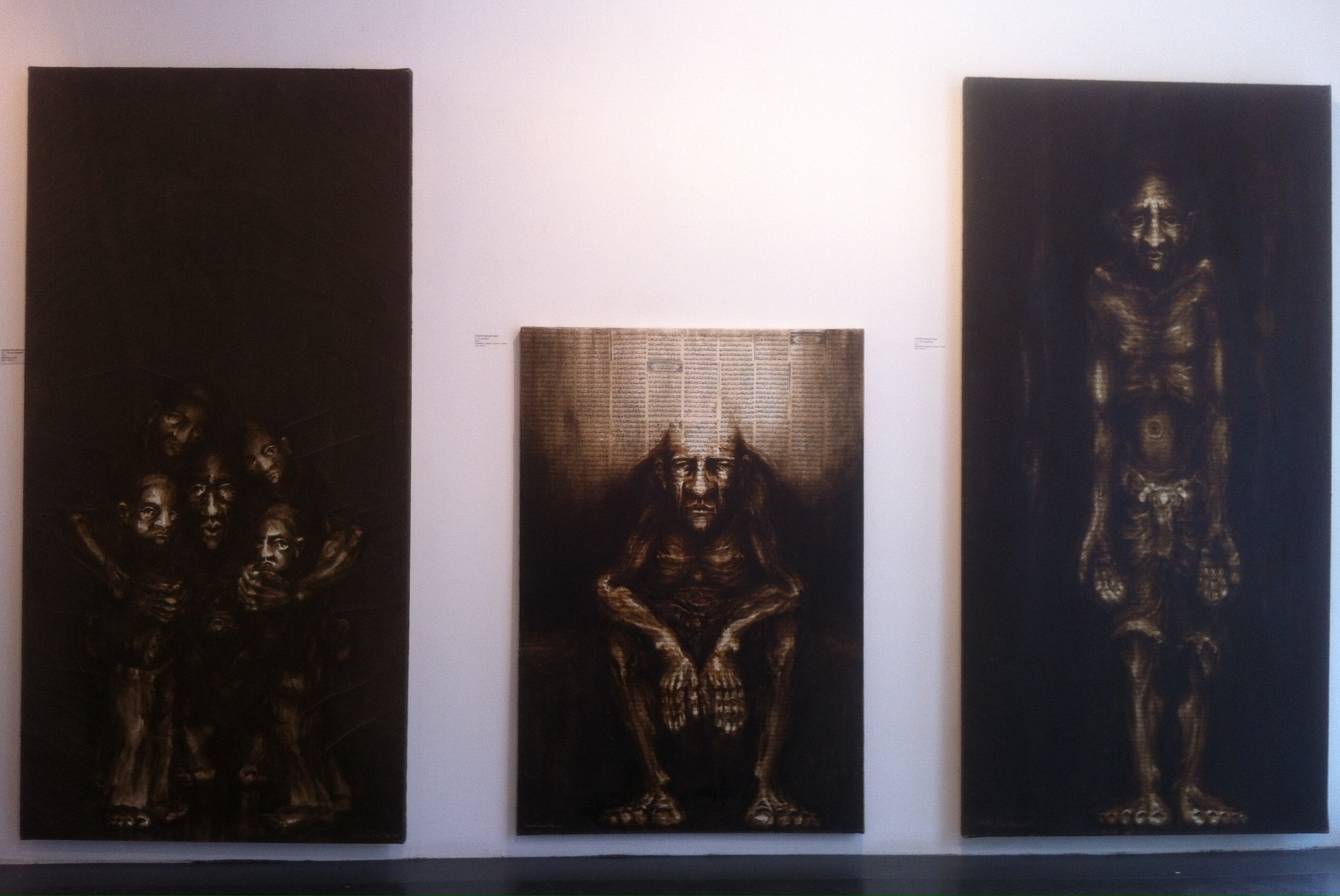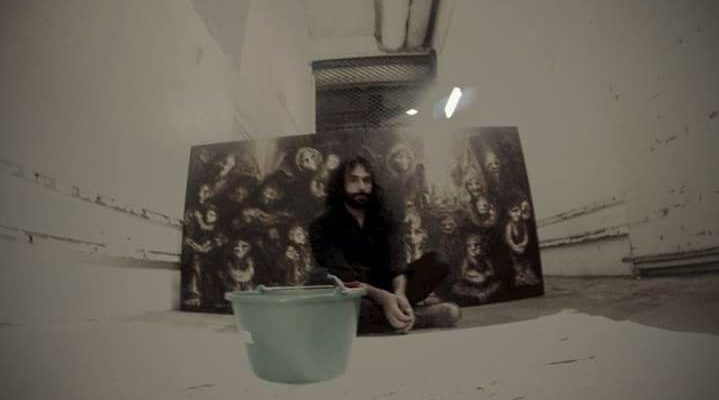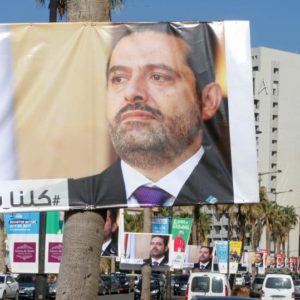The artist Charbel Samuel Aoun opened his home and his woodland to the “New Eastern Politics” Arts and Culture contributor, Christiane Waked to talk about how nature transformed his art into poetry.
As I entered his home, Charbel greeted me with a warm smile, I instantly felt a great aura covering his soul. He seemed real, humble and sweet and I was secretly happy for his beautiful contagious energy will put my soul at ease during this interview that took place at two different places during two different days.

C.W: Tell us about your background?
CS.A: I am a 37 years old simple man who used to live in a typical and modest Lebanese village that was transformed into an urban one.
While I used to wake up to the sound of nature, it was gradually replaced by the noise of a cemented city. I began to suffocate, the visual became hideous and extremely ugly. More buildings, less green so one day, I took a shovel and started to plant trees in the surrounding of my house and the little garden became a small forest. It became my forest “island”, my haven for peace.
The need to create always accompanied me, when I got my Masters degree in architecture, I felt that it didn’t fulfill my inner call which led me to start painting and make my own installations. Living in a reality and creating others, that is what I seek for. To produce, create, nourish my soul and others.
My first inspiration comes from nature, the way it shares itself with the world. I like to integrate the reality of nature in my persona.
C.W: What is nature giving you as an artist more than galleries and the art scene?
CS.A: Authenticity. Nature is my refuge from the system. I am a simple man who doesn’t like games. I don’t like how art is being used in certain ways under specifically written legends and how curators are calling out the artists to fill certain needs. I just refuse to be labeled by this system.
I want to make exhibitions in the streets that speak to everyone and not just the bourgeoisie.
C.W: So you think that art nowadays is only destined to a certain elite and you feel the need to democratize it?
CS.A: Art is for everyone. It should be on the streets rather in cold galleries. One of the exhibitions I did that meant to me a lot was displayed in Institut du Monde Arabe in Paris because I didn’t get the license to display it on a public wall in Beirut. It was titled:”Voices of the Invisibles”, during four minutes, I gave workers who passed in Jesuit garden (jardin des jésuites) a voice, they spoke briefly about their experience as refugees and I gathered these voices and displayed them in corners so that you can hear the story of every worker. This exhibition was also showcased at “Biennale des jeunes créateurs d’europe et de la méditerranée” in Ancona, Italy.
In another exhibition “Whispering taps”, I gave cleaning ladies mostly from Ethiopia or Philippine the chance to express of what they are going through (for instance: I don’t have my passport (…). Sir tried to rape me or Madam beats me etc.)
This exhibition was showcased in different places all over the world, like the MAC (Metropolitan Arts Centre) Belfast or Das weisse haus which is an art association, exhibition space and non-profit-organization for the promotion and presentation of young art in Vienna etc.
You see Christiane, my exhibitions must mean something. I want to be the voice of the marginalized and the weak and a mirror for the Lebanese society. Most of the times, I engage the invisible people in my art because they are the ones who inspire me the most and through them, the public becomes more interactive with my works.
I also want to be the voice of nature and you can see that in the footage of my installation: “And still I breath” that figured in an exhibition called “the exodus of the fragile” at Tanit. In 2014, I visited a burnt forest where the fire left a scene of desolation. The old burnt trees, witnesses of the past, lungs of the future, came together in an overnight to be no more than a collapse of branches and trunks. And yet they live, they live despite their combustion, they become a manifesto of life.
The message in “And I still breath” is that despite the darkness and the desolation, in nature emerges an ode to life.
C.W: How do you protect yourself and your art from the risk that the outside world can alternate what is pure in you?
CS.A: In my daily life, I protect myself from people and I make sure to attract people who are like me. By that I mean, people who belong to the same feelings. (C.W: thank you for opening my eyes to what you just said. I agree, sharing the same energy is important but having the same feelings is crucial ).
C.W: Do you ever feel like leaving Lebanon and its chaos?
CS.A: Conversely, I belong to that chaos, there is something very poetic about it. The sense of belonging can be very diverse. Sometimes we belong to a common sensibility or to multiple ones. For instance, I belong to my forest as much as I belong to the social dimension of my life and even to the chaos.
Besides, I am rooted in Lebanon, it is my reality. I am not the kind of person who would give Beirut a definition and say that’s it. I always try to see Beirut in different perspectives and I always discover new things about this indomitable city.
In other words, the forest is the space where I find myself and where I feel that my reality is stable, fixed and timeless.
The social space is my field of experimentation so that is why I keep finding myself attracted to it and it is the reason that I cherish my Lebanese experience because it is real and absolute.
C.W: There is sincerity in your words, your tone, your attitude, your posture, your face, do you think you owe it to nature to be able not to sugarcoat your truth?
CS.A: Nature helped me to be at ease and listen more to myself. Nature’s language is very discreet and secret. The silence of nature caresses your mind. It opens you to different dimensions and shows you at the same time life and death. The cycle is logic, dead trees cohabit the thriving and flourishing ones.
Death is a construction project in the forest, it offers itself to the living ones, like someone who is donating his organs.
C.W: Tell me about your paintings that you created from dust.
CS.A: My painting series that was created only from gathered dust hold a special meaning to me. I gathered these dust from the streets where people walk and leave their trace behind as if I was collecting bits of their souls. These paintings represent people that are real although they are built from natural materials like dust, germs, etc.
Each painting tells a story of dust because everyone has a little bit of the Sun and moon dust in him.
Besides, I don’t see why we should buy materials to paint while it can be found in nature.
(As he was showing me his paintings, I was struck by an image, one of a woman that resembles the Virgin holding a child, Charbel informs me that he titled it “The terrorist”, he explains that he is fed up of labels and that’s why he named it that way).
After showing me his atelier, Charbel invited me to his forest, as we begun to wonder, he generously stopped to explain about every tree he planted, offering me fruits and leaves to taste and I was literally enchanted.
After this beautiful pause, I ask him if we can resume the interview another time and indeed we d id but this time in a café and we were both very chatty this time as when old friends meet.
id but this time in a café and we were both very chatty this time as when old friends meet.
C.W: What are you working on now?
CS.A: Currently, I am working on a project that I named “Square meter”, I want to strip this concept from its investment value. I want the workers who helped build a house tell their own stories. Some of these Syrian workers who contributed in giving people homes can never afford to have their own houses.
We need Christiane to expose the truth about the harsh system that exploits some people for the benefits of others.
We are here to denounce but also to share the consciousness with our robotic successors.
C.W: Will art be able to save humanity in this century?
CS.A: Art nowadays represents the last fossils of information. Nothing we are creating in that matter offers anything new. The earth shares the consciousness with human beings but it only depends on them to whether use it to ameliorate or destroy their environment.
Unfortunately, man is incapable to surpass his fears and interests even if he was intelligent.
Personally, I am resisting but resistance means suffering.
(C.W: I think that the best form of resistance is letting go)
Indeed, death is the ultimate form of sharing.
C.W: Any last words?
CS.A: Sadly, even if we resist, we are all a product as if I am selling some part of me to feed this interview.
C.W: Do you regret it?
CS.A: (he smiles) No, it is part of the game, it is the reality these days but I am not into the demonstration or revealing. Simplicity is really the key and the essence of everything.
I look at pregnant women for example and how they are their own atelier. They produce with simplicity and they expose their fragility because they are more courageous than men, they dare to expose.
Christiane Waked is a former Press Attaché of the French Embassy to the UAE (2010-2015) also worked as linguist and analyst in the French Interior Ministry (2005-2008)







